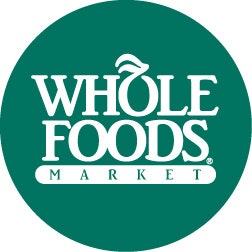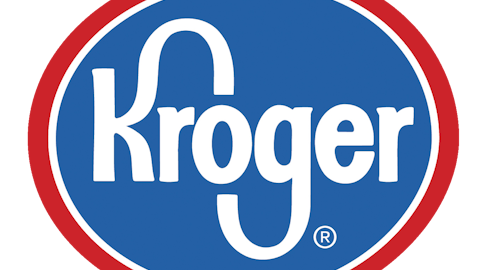Going healthy is the most “in” thing in the US. People are becoming more and more conscious about having fast food and soda and for their grocery options increasingly prefer organic and natural produce. Historically shunned for being overpriced, we find that upscale grocers with organic food offerings are becoming more popular. This is definitely excellent news for the nation’s first “Certified Organic” grocer, Whole Foods Market, Inc. (NASDAQ:WFM). This is also good news for investors. The organic food segment is growing fast and Whole Foods Market, Inc. (NASDAQ:WFM) is a good stock to leverage this growth. The company also has some solid growth strategies that make it a compelling option.
Leveraging and fueling demand for organic food
The organic food industry has been growing rapidly over the past decade. The USDA has noted that last year organic food sales in the US totaled about $27 billion and represented 3.5% of the total food sales in the country. It grew at a pace of 7.4% over 2011, which was more than twice the growth in overall food sales.
Whole Foods Market, Inc. (NASDAQ:WFM) is leveraging the trend well by constantly focusing the attention of buyers on the quality of its offering. It provides label information like five-step animal welfare ratings in meat, eco-scale ratings for cleaning products, sustainability ratings in seafood, and similar ratings.
Recently, the company made a big announcement saying that it would provide information on genetically modified organisms or GMOs contained in all of its products on their labels. This will be implemented in all US and Canadian stores by 2018.
Pesticides and GMO are essentials in traditional agriculture and the claim to fame for organic produce is that they are grown without these. As a result, the GMO disclosure will strike a chord right where it matters and further boost the company’s already strong brand image.
The company’s labeling transparency has played a huge role over the years in earning it an extremely loyal customer base. Whole Foods Market, Inc. (NASDAQ:WFM) spends minimally on organized marketing. Its spending on promotions was just 0.4% of its annual sales in 2012.
More competitive
With the increasing awareness and popularity of organic foods, every retailer who sells groceries wants to have a piece of this pie. So, we find not only supermarket giants like The Kroger Co. (NYSE:KR) stocking more organics but also warehouse clubs like Costco Wholesale Corporation (NASDAQ:COST) joining the party.
Last year, The Kroger Co. (NYSE:KR) expanded and re-branded its natural and organic product lines. The new brands, known as “Simple Truth” and “Simple Truth Organic”, offer more than 300 products in different categories including everything from milk, salads, dried fruit, sodas, yogurt, and more.
These had a big role to play towards the revenue growth of 3.4% to $30 billion and the 2.9% same store sales growth that the company clocked in the first quarter. The Kroger Co. (NYSE:KR) intends to add 75 new items to its lineup and have as many as 450 “Simple Truth” options by the end of the year.
Groceries are also a popular category at Costco Wholesale Corporation (NASDAQ:COST), and it stocks a wide array of natural and organic foods. On account of its huge scale it sources its merchandise at the best prices while spending minimally on store décor. Both of these factors allow it to offer its products at unbelievably low prices to its members.
This is a big advantage over specialty retailers like Whole Foods Market, Inc. (NASDAQ:WFM) which can never match Costco Wholesale Corporation (NASDAQ:COST)’s scale and need to create an ambiance to go with their brand images. The latter’s operating strength is amply reflected in its most recent third quarter results where it increased its revenue by 7.9% to $24.08 billion backed by same-store sales growth of 5%.
To counter the challenge, Whole Foods Market, Inc. (NASDAQ:WFM) evaluates its position every month by comparing its price index with the overall market as well as with key competitors. It uses this data to help it identify areas where it needs to be more price-competitive.
It was able to improve its pricing position in the perishable products category in the recent second quarter. During this period, Whole Food’s revenue grew by 13% to $3.03 billion and same store sales by 6.9%.
We find that the company is doing a lot of big sales these days. It is also offering deals on select merchandise and providing everyday low prices on more goods. While it is still no match for Costco Wholesale Corporation (NASDAQ:COST) or ever The Kroger Co. (NYSE:KR) in terms of prices, Whole Foods is definitely becoming more competitive.
Expansion plans
The company wants to have more scale, increase its market share, and grow faster. To achieve this, it has embarked on an aggressive growth path and is looking to increase the count of its stores to 1,000 from the current 349.
Whole Foods is exploring all kinds of new markets including smaller cities like Maple Grove, Minnesota or Closter, New Jersey. It has even opened in Detroit, which was considered an unlikely location on account of its near 10% unemployment rate.
In the second quarter, Whole Foods opened six new stores. It is adding another four in the third quarter and will add 12 more in the fourth. The size of the new stores is suited to the neighborhoods which they serve and range from 16,000 to 50,000 square feet.
The new stores are providing excellent returns. In the last eight quarters, the number of stores open for approximately six months has been around 25. The company had an after-tax return on invested capital of 19% in the second year of a new store opening.
Last word
Whole Foods is a nice play in the fast-growing organic foods segment. The stock is up 13.88% year-to-date and has more upsides to it stemming from its solid operating performance, growing demand, improving competitive position, and expansion plans.
Eshna De has no position in any stocks mentioned. The Motley Fool recommends Costco Wholesale (NASDAQ:COST) and Whole Foods Market. The Motley Fool owns shares of Costco Wholesale and Whole Foods Market. Eshna is a member of The Motley Fool Blog Network — entries represent the personal opinion of the blogger and are not formally edited.
The article This Grocer Is a Healthy Investment Proposition originally appeared on Fool.com is written by Eshna De.
Copyright © 1995 – 2013 The Motley Fool, LLC. All rights reserved. The Motley Fool has a disclosure policy.






